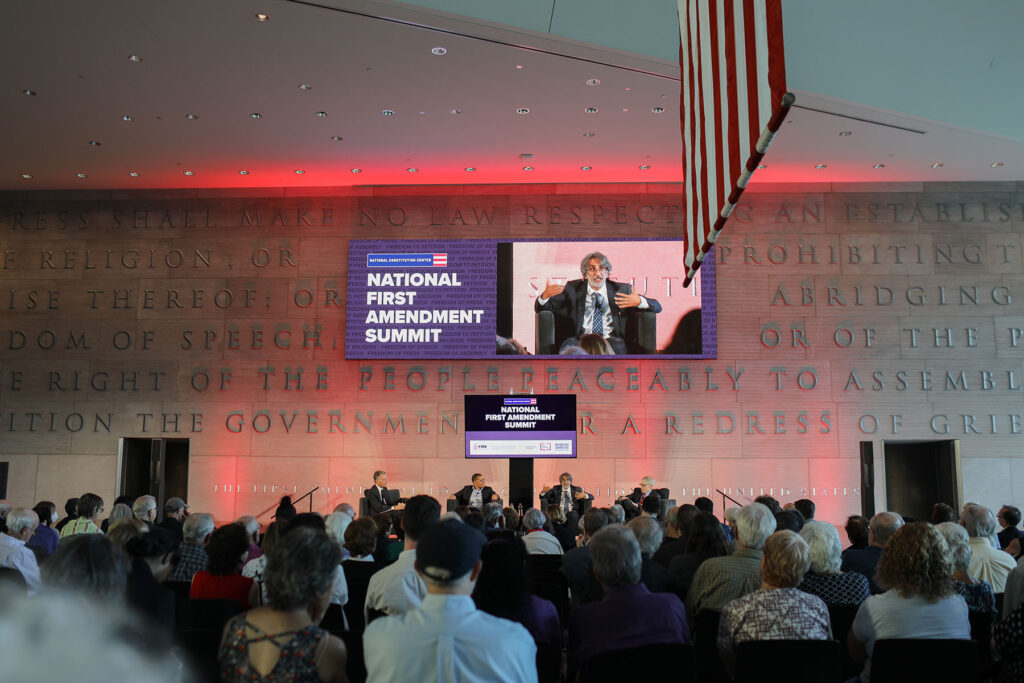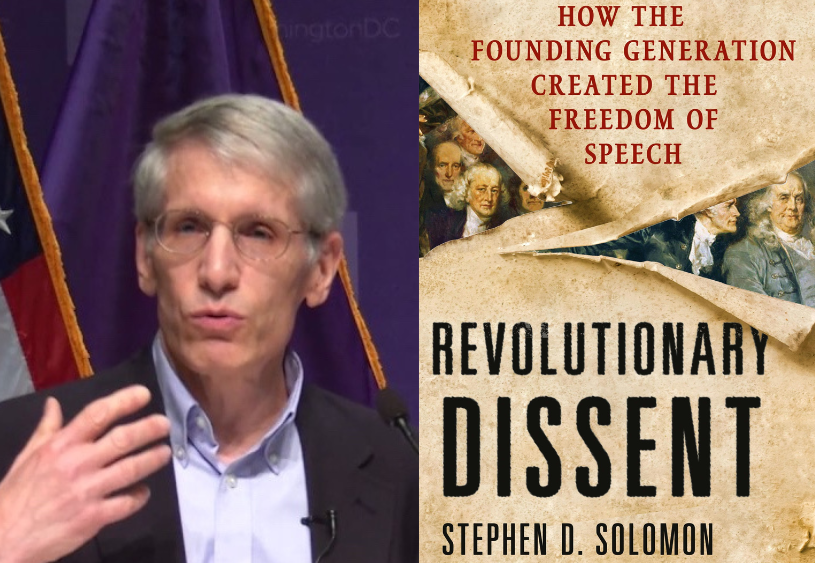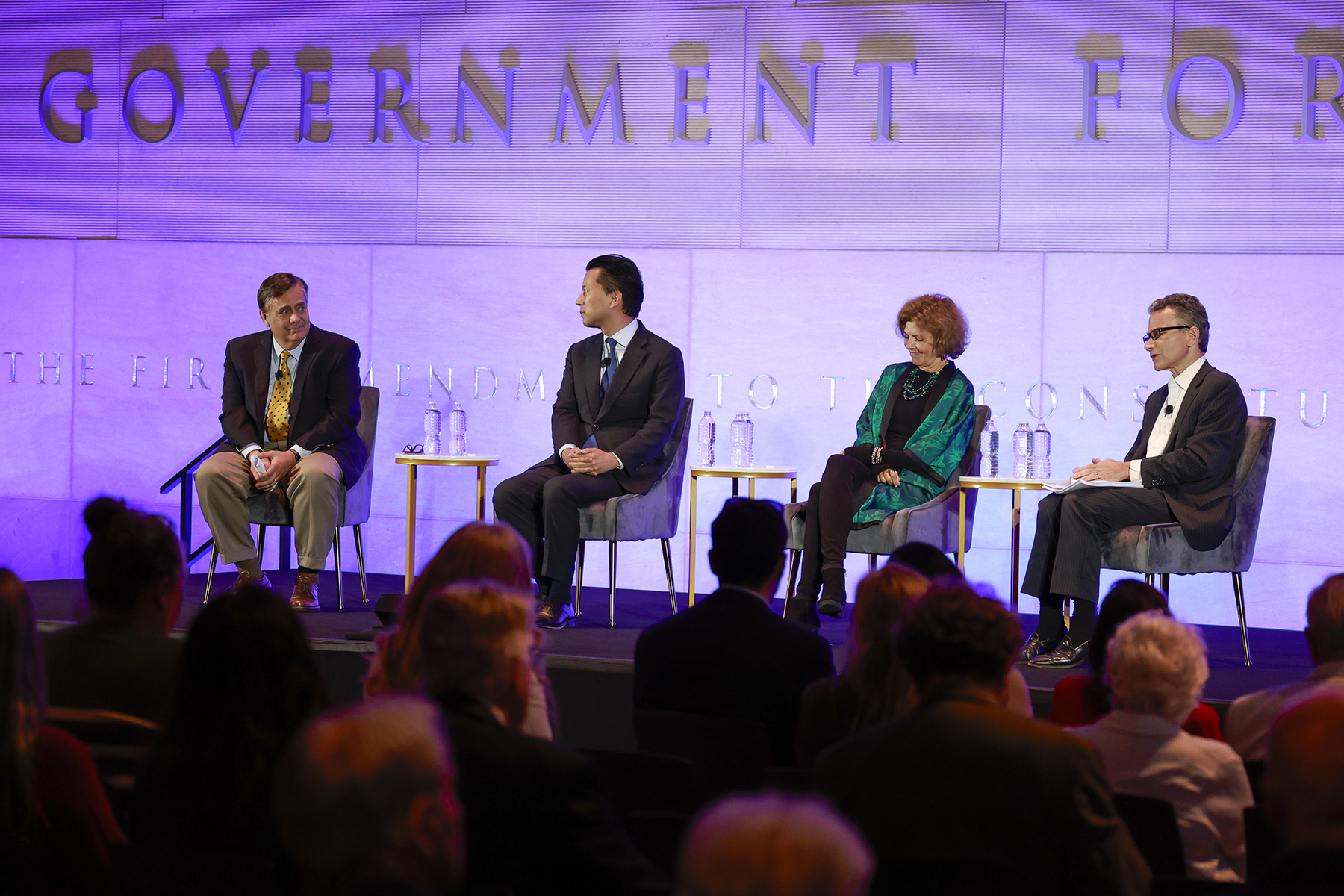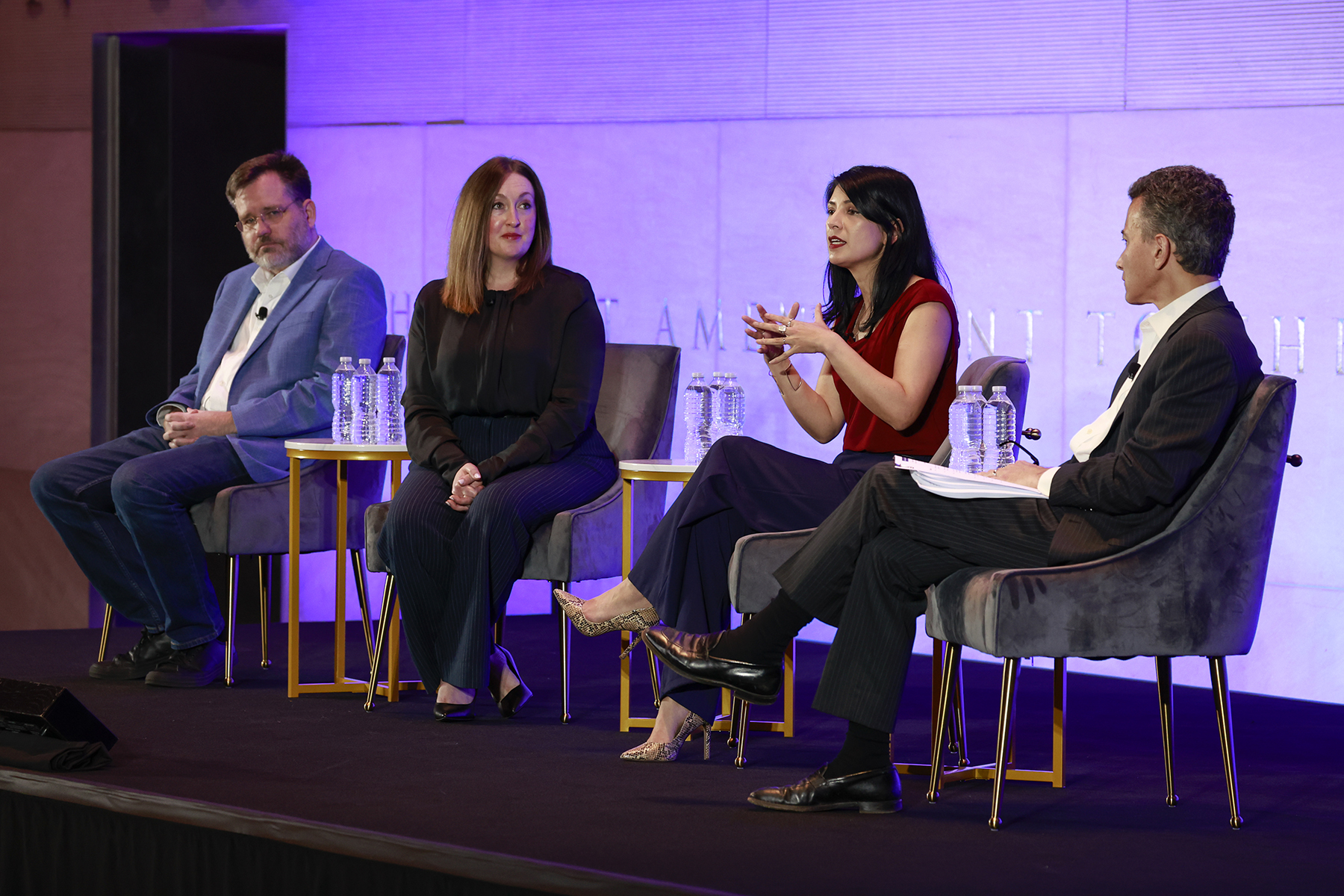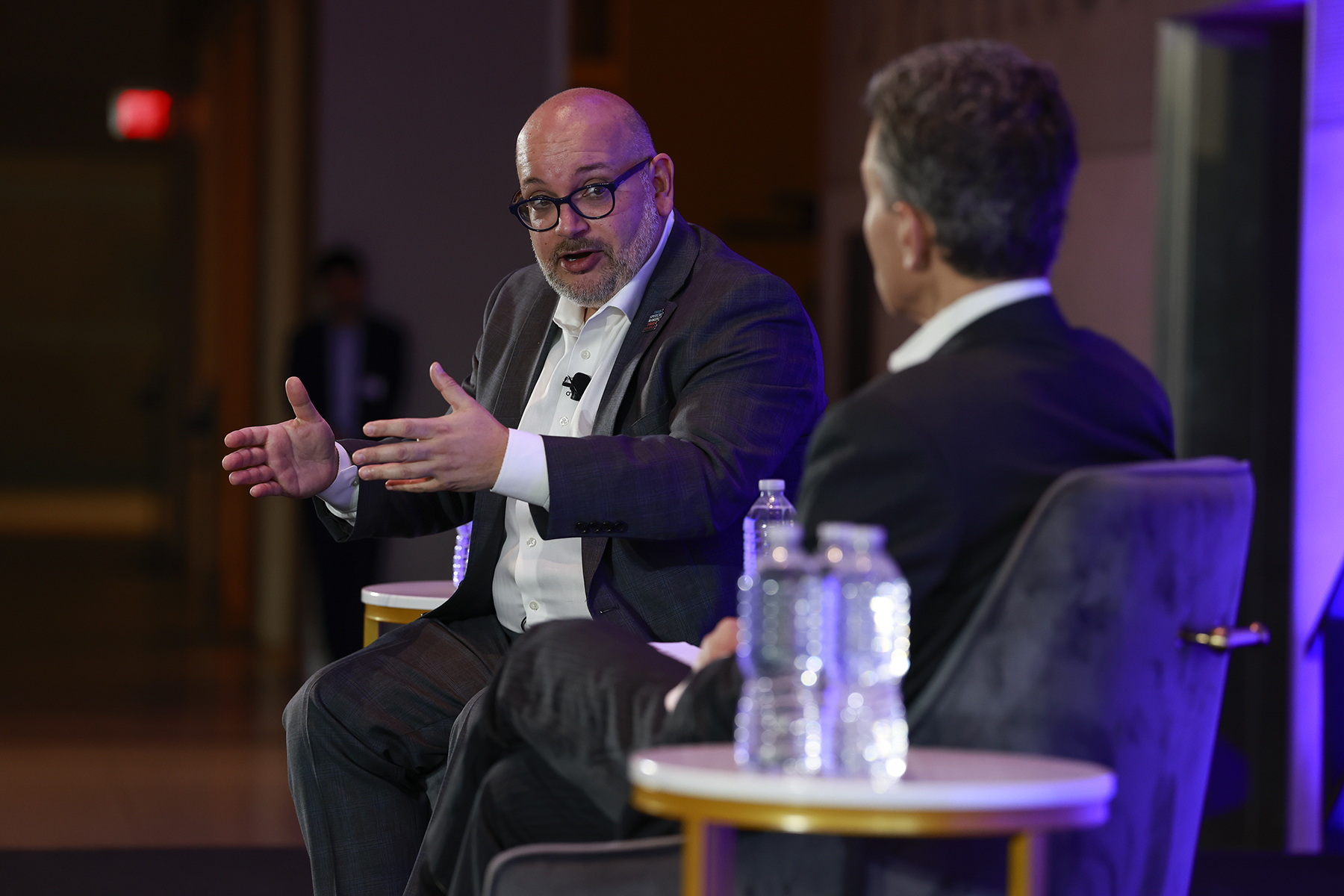Leading First Amendment scholars convened to discuss the origins of freedom of expression and its central role in American democracy at the inaugural National First Amendment Summit in Philadelphia on Wednesday.
The event, hosted by the National Constitution Center in partnership with a coalition of leading free speech organizations, including First Amendment Watch, addressed the increasing threats to freedom of expression and the looming challenges posed by new technologies.
Moderator Jeffrey Rosen, president and CEO of the National Constitution Center, was joined on stage by Jacob Mchangama, founder and CEO of Justitia and research professor at Vanderbilt University; Akhil Reed Amar, professor of law and political science at Yale University; and Stephen Solomon, professor of journalism at New York University and founding editor of First Amendment Watch.
Mchangama, who recently moved to the U.S. from Denmark to expand his think tank’s The Future of Free Speech project, said that “free speech is a continuous experiment.”
“There’s no guarantee that free speech will always ensure tolerance, peace and prosperity,” he continued. “Historically, the case for free speech is pretty good, but I can’t guarantee that will always be the case moving forward.”
In discussing the importance of the First Amendment, Amar suggested a commitment to its protections of free expression has the potential to unify Americans around shared principles if older generations manage to educate younger generations about its importance.
“The only thing we have in common is our Constitution and our national narrative,” he said. “Kids don’t learn it, they don’t know their presidents, they don’t know the history of the Revolution and the Civil War … that’s the national narrative that needs to be taught.”
Solomon shared Amar’s sentiment, highlighting the story told within the text of the amendment.
“It’s not just a bunch of rights that are put together,” he said, “but there’s a narrative of democracy — from the beginning to actual political change — and speech and press sit right there in the middle and are absolutely critical to that process.”
You can watch the full panel here. You can find the other panel discussions featuring the country’s leading experts on free speech here.
Tags
